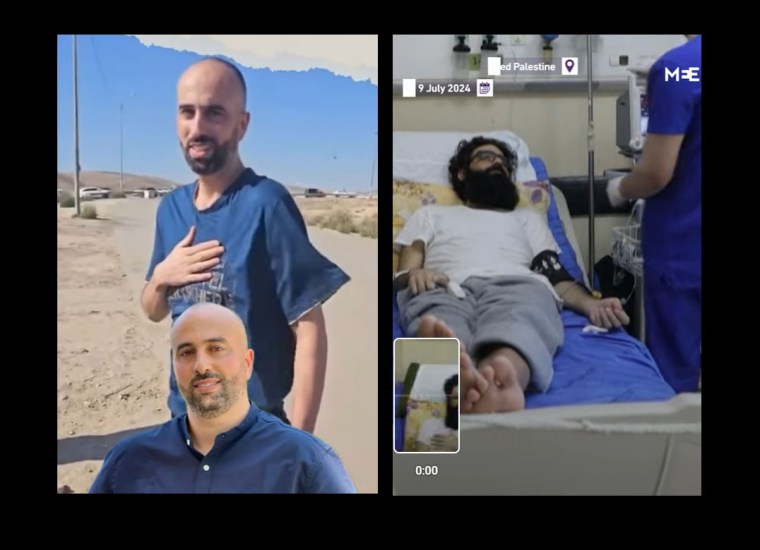The finding follows CPJ’s submission; expert body requests journalists’ immediate release due to arbitrary detention.
New York, October 29, 2024—United Nations legal experts determined that Israel’s detention of three Palestinian journalists — Moath Amarneh, Mohammad Badr, and Ameer Abu Iram — is discriminatory, arbitrary, and in violation of international law.
The expert opinion by the United Nations Working Group on Arbitrary Detention was released on September 22 following an urgent appeal by the Committee to Protect Journalists (CPJ) after a wave of arrests in the West Bank began on October 7, 2023, and continues to this day. More than 40 journalists are currently held by Israeli authorities.
The group expressed concern about the severity of the alleged conditions the journalists were subjected to during detention, some of which included beatings, being forced to wear winter clothes in summer and summer clothes in winter, and being handcuffed for long periods of time, causing swelling in their hands, as well as unrefuted allegations from CPJ regarding the poor quality and quantity of food.
“The U.N. Working Group’s determination that three Palestinian journalists were unlawfully held by Israel illustrates how imprisonment is wielded to take them out of commission,” said CPJ Director of Advocacy and Communications Gypsy Guillén Kaiser. “These journalists, and dozens of others put behind bars since the start of the war, are in a black hole of potentially endless detention, where they face brutal treatment. Israel must comply with its international commitments and end these arbitrary detentions.”
The journalists’ work is linked to their detention, the Working Group found, noting that the three men had “critically examined the behavior and impact of the Israeli Defense Forces” and covered various issues relating to Israel and the Occupied Palestinian Territory. It further held that the detention was discriminatory, being based on the journalists’ “national, ethnic and social origin as Palestinian” and “because of their political opinions, which are critical of the [Israeli] Government and its policies.”
The opinion urged Israeli authorities to release Badr, investigate the detentions, hold those responsible for these rights violations to account, and provide the three journalists with compensation or reparations in accordance with international law. Abu Iram and Amarneh were released earlier this year; none of the journalists were ever charged, the Working Group found.
The journalists were detained under Israel’s practice of administrative detention, which allows a military commander to detain an individual without charge, typically for six months, on the grounds of preventing them from committing a future offense. Administrative detention can be extended an unlimited number of times.
Prior to this ruling, the Working Group found administrative detention unlawful in Israel in at least three cases, and the U.N. special rapporteur for the situation of human rights in the Palestinian Territory occupied since 1967 previously called for Israel to end the practice.
The journalists were also denied the right to be visited by and correspond with family members and communicate with the outside world. Two of the journalists were also denied the right to legal assistance, having been unable to initiate access or hold private communications with their lawyers, the Working Group found.
The Working Group concluded that the arrest and detention of the three journalists resulted from the peaceful exercise of their right to freedom of opinion and expression, contrary to article 19 of the Universal Declaration of Human Rights and article 19 of the International Covenant of Civil and Political Rights (ICCPR). Israel is party to both and thus in violation of its own commitments.
The Working Group followed its usual protocol of notifying and allowing 60 days for Israel to respond to CPJ’s allegations, which the government did not refute.
CPJ documented many incidents of journalists being killed while carrying out their work in Israel, the two Palestinian territories, Gaza and the West Bank; and nearby Lebanon. These include 134 killings, at least five of which were targeted, 69 arrests, as well as numerous assaults, threats, cyberattacks, and censorship.
According to CPJ’s 2023 prison census, Israel was one of the world’s leading jailers of journalists.
About the Committee to Protect Journalists
The Committee to Protect Journalists is an independent, nonprofit organization that promotes press freedom worldwide. CPJ defends the right of journalists to report the news safely and without fear of reprisal.
Media contact: [email protected]
